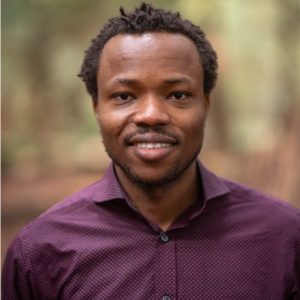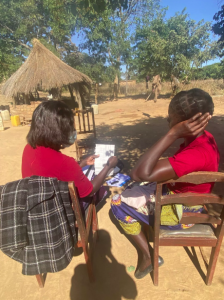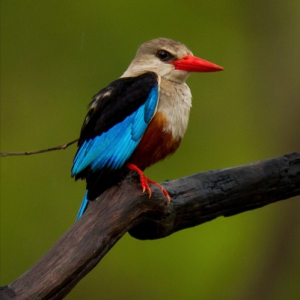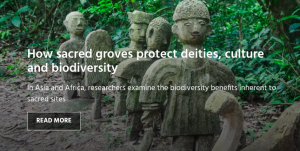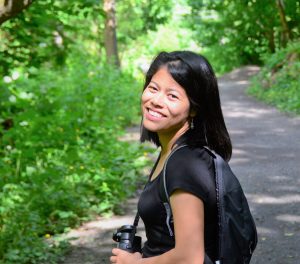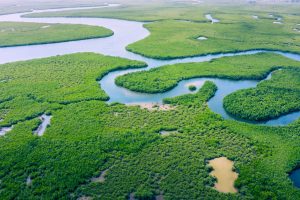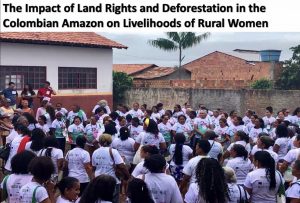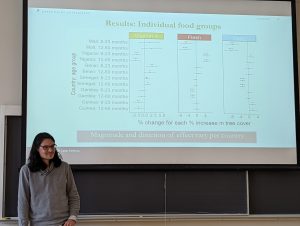Sam spoke about his research on sacred groves in Nigeria on the In Common podcast
“Sam’s research shows how threats in the form of changing beliefs and taboos can lead to the gradual conversion of sacred groves into land used for agricultural and residential purposes, instead. Mistrust and tensions between communities and government, form another treat to what sacred groves can mean for biodiversity. Also, and paradoxically, the success of […]
Alida’s Fieldwork Experience in Kalomo District, Zambia
Read about Alida’s fieldwork experience working with communities in Kalomo District, Zambia here.
Debbie’s story posted in Graduate and Postdoctoral studies page
Read more here!
Terry speaks about armed conflict and natural resource management on WABiLED podcast
“WABiLED is a four-year program funded by the United States Agency for International Development (USAID) with 3 core objectives: combat wildlife trafficking and enhance great ape conservation; reduce deforestation, forest degradation, and biodiversity loss in key transboundary forest landscapes; and reduce greenhouse gas emissions and increase carbon sequestration from land use.” Listen to the full […]
New article on “How sacred groves protect deities, culture and biodiversity” featuring Sam
Sacred groves have existed in most human cultures around the world since as far back as we can trace. But in addition to local deities and significant cultural practices, important biodiversity is also protected by these places, says new research from Nigeria, where one such area has been designated as a UNESCO World Heritage Site. “Our […]
Joli was featured in Forbes for her research on Traditional Indigenous Agriculture in India
“Conservation scientist Joli Rumi Borah found that a traditional indigenous farming method from India that feeds millions of people in the Global South has carbon and biodiversity and cultural benefits as well. “My research showed that farmers in Northeast India have adopted various innovative ways to improve crop yield and enhance forest regeneration,” she says, […]
New Article on ‘Why Forests are good for you: Food security and nutrition in Latin America’ by Debbie Pierce and Winy Vasquez
Food insecurity has been an intransigent global challenge for decades, and in some parts of the world it has been exacerbated by conflict, climate change, and land grabbing. Many communities living in or near forests continue to rely on forest foods for both their day-to-day consumption and as a safety net when other food sources become […]
Debbie won the second prize in the 10th Annual Forestry Three Minute Thesis Competition!
Big congratulations to Debbie for winning the second prize in the 10th Annual Forestry Three Minute Thesis Competition! Debbie’s work at Sunderland lab focusses on the impact of land rights and deforestation in the Colombian Amazon on livelihoods of rural women.
Sunderland lab recently hosted guest speakers Laura Vang Rasmussen and Bowy den Braber from University of Copenhagen
Sunderland lab had the pleasure to host Laura Vang Rasmussen, Associate Professor, University of Copenhagen and Bowy den Braber a postdoctoral fellow working with Laura on 25th February. Bowy presented his work on effects of trees on dietary diversity in the Sahel. We look forward to hearing more updates from the exciting research.
New Article on ‘Is it possible to feed the growing population without destroying forests?’ by Nur Bahar and Terry Sunderland
Nur Bahar and Terry Sunderland illustrate why it is important to challenge the narrative of ‘food production-at-all-cost’ at the expense of our forests. The dual narratives of doubling world food production by 2050 and a focus on production alone have dominated the discourse on global food security for the past 70 years and strongly influence decision […]
